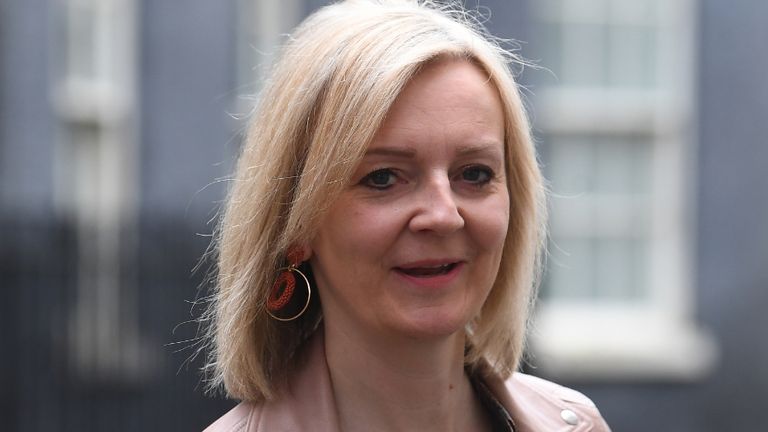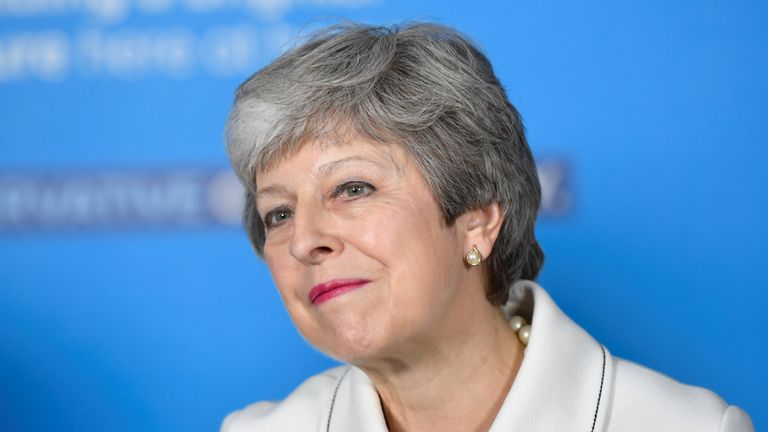The government has abandoned plans to let people officially change gender without medical checks – but ministers have promised to make the process cheaper and “more straightforward”.
In its response to a consultation on the 2004 Gender Recognition Act, the government concluded that “the balance struck in this legislation is correct”.
“There are proper checks and balances in the system and also support for people who want to change their legal sex,” women and equalities minister Liz Truss said in a written statement to parliament on Tuesday.
By sticking with the current legislation, the government has backtracked on former prime minister Theresa May‘s proposal to allow transgender people to change their birth certificates without a medical diagnosis.
Speaking in 2017, Mrs May said plans to reform the Gender Recognition Act would involve “streamlining and demedicalising the process for changing gender because being trans is not an illness and it should not be treated as such”.
In Tuesday’s move away from that approach, it means people wishing to apply for a Gender Recognition Certificate – and thereby have the law recognise them as having all the rights and responsibilities appropriate to a person of their acquired gender – will still have to have been officially diagnosed with gender dysphoria.
In her statement, Ms Truss did admit it was “clear that we need to improve the process and experience that transgender people have when applying for a Gender Recognition Certificate – making it kinder and more straightforward”.
She promised to reduce the fee for applying for a Gender Recognition Certificate from the current £140 to a “nominal amount”.
Ms Truss also vowed to move the entire process online to make it less bureaucratic.
She added that the government’s consultation had led it to “understand that gender recognition reform, though supported in the consultation undertaken by the last government, is not the top priority for transgender people”.
“Perhaps their most important concern is the state of trans healthcare,” the cabinet minister said.
:: Subscribe to Sophy Ridge on Sunday on Apple podcasts, Google podcasts, Spotify, Spreaker
Ms Truss highlighted the opening of at least three new gender clinics this year as part of efforts to cut waiting lists.
She claimed that “Britain leads the world as a country where everybody is able to lead their life freely and treated with respect and that, for many years, transgender people have been widely accepted in British society; able to use facilities of their chosen gender; and able to participate fully in modern life”.
In the Republic of Ireland, people have had the right to a gender based on self-declaration since 2015, while last week the British Medical Association gave their support for the right of transgender and non-binary people to self-identify.
Responding to the UK government’s announcement on Tuesday, Nancy Kelly, the chief executive of LGBT charity Stonewall, said it had “fallen far short on its promise to reform the Gender Recognition Act, and has missed a key opportunity to progress LGBT equality”.
“It’s a shocking failure in leadership that after three years and a robust public consultation, the UK government has put forward only minimal administrative changes to improve the process for legal gender recognition of trans people in England and Wales,” she added.
“While these moves will make the current process less costly and bureaucratic, they don’t go anywhere near far enough toward meaningfully reforming the act to make it easier for all trans people to go about their daily life.”
Susie Green, the chief executive of charity Mermaids, expressed her disappointment that the government had not moved to allow self-declaration.
She added: “While we welcome news that the cost of the GRC process is to be lowered to an unspecified ‘nominal’ amount and applications moved online, we know from our young service users that they hoped for more and we must repeat our disappointment that none of these proposals offer help to those aged under 18.”


